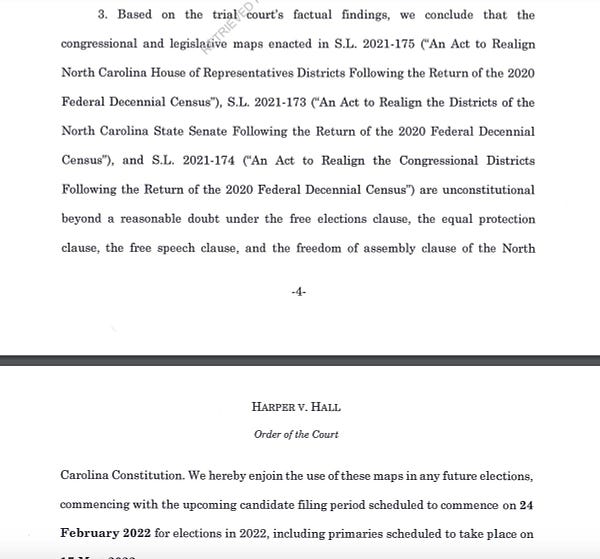We often hear of the tides of history, as if the fate of the world shifts in unison - the rising and lowering of a great sea of fortune. Tides are predictable. They are unstoppable. They are acts of nature. Human affairs, while inextricably tied to planetary forces, are also shaped by the actions we take, and do not take. Our destinies do not move with any great cohesion or coordination. Rather we are more like boats tossed by the accumulation of countless individual waves (to stretch our maritime metaphor), cresting and receding, churning and placid, forceful and gentle. These can be waves that push us backwards, but they can also propel us forward to a better future.
When looking back at the past, it is tempting to see paths as preordained - narratives we neatly tuck into the contextual confines that make them easier to understand. In contrast, the present is always messy. It will only become clearer once we know how it ends, at which point we will be living in a new era of uncertainty.
We have written a lot at Steady of the crises of our current age. We can never dismiss the many challenges we face or the threats they pose. They are particularly dire. The list of woes bears repeating and remembering - from the climate crisis (felt with an extreme cold front here in Texas), to the ongoing threat to our democratic institutions, to our continued struggle for racial justice, to the threats of war, to the pandemic, and onward.
In the future we may look back and see that one of these forces escalated to a point of even greater dominance, and disaster. But this week, amidst the swirling seas of discontent, I also saw islands of hope emerge. These should remind us that the ultimate course of our current trend lines is not preordained.
One of the few things I have learned with any certainty over the course of a long life is to be wary of certainty. Those who predict with the most confidence what will happen in the future are often the voices that should be treated with the greatest skepticism. These paragons of certainty invariably are the ones who talk the most and consequently do the least to make a difference.
So today, I wanted to highlight three events from the past week that brought a sense of optimism. What they all might add up to remains to be seen.
Democracy
The Republican Party entered the aftermath of the 2020 census salivating at the prospects of expanding on what they were able to achieve back in 2010 - the use of extreme partisan gerrymandering in states they controlled to heavily tilt the balance of power in the House of Representative (and in state houses) in their favor. The result was that even if the Democrats won many more total votes in congressional elections when counted on the national level, the way those votes were pooled into districts meant the Republicans could still win control of the House.
Many election experts predicted that the Republican hopes would be realized again this time around. But that isn’t what happened. Not by a long shot. There seems to be a growing consensus that there might now be no or minimal partisan tilt in the House. In other words, whichever political party wins the most congressional votes will likely win the House in the decade ahead. That’s how it should be.
This doesn’t mean the Democrats will retain control of the House in 2022, or beyond. The historical trends for off-year elections and the headwinds of President Biden’s current low approval ratings suggest the Democrats will likely lose and could lose big. Whether they win or lose, however, should be dictated by what voters think of the job they are doing, not by a gaming of the political system. That both political parties will now have more of a fair shot should be considered a big win for democracy.
How this happened is itself a patchwork of stories, as the rules for how to draw congressional maps still, at this point, reside with the states. What was different from 2010 is that the Democrats went on the offensive. The latest and perhaps most significant victory came in North Carolina on Friday when the Democratic majority on the state's supreme court threw out the map that the (gerrymandered) Republican-controlled state legislature had drawn up. The experts who study these things believe this could lead to a swing of several congressional seats towards the Democrats.


This wasn’t the only victory for the Democrats in the courts. Earlier, the Ohio Supreme Court threw out its state’s maps in a way that will help Democratic representation in the Buckeye State. And federal judges threw out Alabama’s map, ruling it violated fair representation for Black residents. This case is currently pending before the United States Supreme Court, which could reverse course. Or it could rule in a way that further expands non-white representation in Congress.
The Democrats have gotten to parity by also playing the partisan gerrymandering game in states they control, particularly Illinois and New York. In the latter, the map that has emerged is so aggressive that it will likely switch three Republican seats to Democrats. In the New York Times, Michael Li, senior counsel for the Democracy Program at the Brennan Center for Justice called it “a master class in how to draw an effective gerrymander.”
Predictably, the trends laid out above have led to hackles from many Republicans. They have argued that there is extreme hypocrisy among Democrats because they promote gerrymandered maps in Blue States while suing to strike down gerrymandered maps in Red or Purple States. These Republican critics would have a strong case, except for one very important point. For years, Democrats in Congress have tried to pass voting rights bills that would outlaw all partisan gerrymandering across the country. And Republicans have voted, in unison, against such measures. So to now complain about partisan gerrymandering is pretty darn rich.
I suspect Democrats would gladly make the maps of New York illegal if it meant the same rules applied to Texas, Georgia, Wisconsin, and the rest of the nation. The bills to do this are still there to be passed by Congress. But after watching Republicans use all the means at their disposal to lock in power, the Democrats seem to have learned to abandon unilateral disarmament.
Maybe the Republicans, weighing their own narrow self-interest, will now change their tune on partisan gerrymandering. We should all hope so. This likely would lead to more contested races, which is what a healthy democracy should encourage. Nevertheless, it is essential that our national legislature more accurately reflects the beliefs of the majority of our nation, whatever that majority may end up being.
January 6
This past week there was also movement on a reckoning over the violent insurrection of January 6. Donald Trump and his enablers are still out there fomenting the Big Lie. But there is a growing sense that the congressional committee investigating those perilous events is making headway. One way of knowing this is the leaks that are coming out that suggest President Trump was much more involved in orchestrating the events that led up to that day than was previously disclosed.




Former Vice President Mike Pence gave a speech this week where he said something that almost no Republican has felt free to say over the last several years, including, especially, Pence - “President Trump is wrong.” Now Pence was only talking narrowly about whether he, personally, had the right to overturn the election. And he is not exactly a profile in courage on such issues as the Big Lie or all the other outrages we have seen from the previous administration, of which he was an integral part.
Nevertheless, in Trump world this speech counts as a major betrayal and a schism within the party. So where it goes from here bears watching. Will Pence retreat once more in fealty to Trump? Or will he stand firm? I suspect some of what we are seeing is being driven by the fact that Pence knows what will come out from the investigation, and how ugly it could be. Two close Pence aids, including his own former chief of staff, have testified at length in front of the committee in recent days.
Although the drum beats of accountability may be increasing, it is still easy to be cynical. For all that we find out, for all that we already know, Trump and those around him seem to be evading a reckoning once again. We can even point to this week’s outrageous censure by the Republican National Committee of the two Republicans who have joined the Democrats in investigating January 6, Liz Cheney and Adam Kinzinger.

Another worry many of you have shared is that there doesn’t seem to be much energy, at least publicly, at the Department of Justice in prosecuting the political players responsible for instigating (and possibly actively planning and abetting) the insurrection. But I would suggest that this story still has many chapters. And there are other active investigations into Trump, from New York to Georgia. While I am reluctant to guess at what anyone else might be thinking. I do have a sense, from his words and actions, that Trump is not confident he can escape responsibility this time.
The Economy
And finally, for our third island of hope this week, let’s look at the U.S. economy. According to polling, this has been a weakness for President Biden. And tor the past several days, there had been expectations, including from the White House, that the jobs numbers that were released on Friday would be shockingly bad. Instead they were shockingly good. When a publication like the Financial Times touts the strength of Biden’s approach to the economy, replete with a picture of the president looking fit and active, perhaps a new narrative might be emerging.
We leave you today by acknowledging that this is but one week in time. The positive developments I mention above might very well be swamped by waves of despair. That being said, my hope is to foster, well, a bit of hope. For I fervently believe that we have a real shot here, not only to minimize our decline, or even to just hold on, but to make this world better and more just.
None of these islands of hope just appeared out of nowhere. They are the products of action and determination. And that is in itself also a reason for optimism. The tides of history are controlled, in large part, by us.
Note to subscribers: We know this is a time when many of you are up for renewal for your paid subscriptions. Thank you to all who have signed on for another year or month. If you have any questions about subscriptions, or anything Substack related, please reach out to the wonderful Substack support team at support@substack.com. We have found them to be incredibly responsive and helpful.





For the last 6 months I have avoided news and newspaper accounts having to do with mid-term elections, polls, and the embarrassment that American politics has become. I occasionally listen to NPR and I read Steady, the only account that gives me any Hope that our democracy can survive and continue to be “a rising Sun”. Thanks Dan.
This is a powerful read and affirms what I was letting myself start to feel. Just, some faint hope in a dark winter. Thank you.